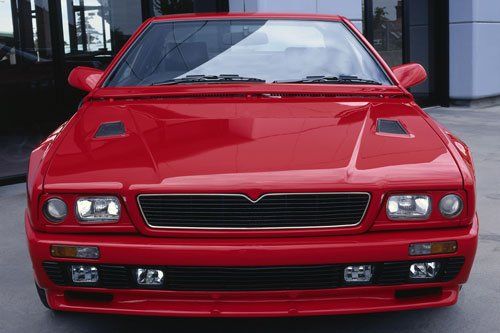3 Common Causes of Water Pump Failure
- By Admin
- •
- 22 Feb, 2019

An automotive cooling system contains numerous components, including a radiator, a thermostat, and a network of hoses and tubes. Yet one of the most critical components of all is the water pump. The water pump provides the pressure necessary to move coolant from your engine to your radiator and back.
Without a working water pump, a cooling system has no way to successfully dissipate heat. Unfortunately, the water pump faces regular wear and tear from a number of sources. If you would like to learn more about what can cause a water pump to fail, keep reading. This article outlines three common causes and what you can do to prevent them.
1. Contaminated Coolant
One of the most common causes of premature water pump failure is excessive amounts of contaminants in your coolant supply. Such contaminants include everything from dirt, dust, and rust to byproducts that form as the coolant ages. These substances are abrasive to the inside of your water pump.
In particular, contaminated coolant commonly leads to the water pump's seals failing. These seals ensure that the coolant remains completely isolated from the oil that lubricates the pump's bearings. Friction from contaminant particles often causes seals to fail. As a result, coolant and oil intermix, leading to serious cooling system problems.
In order to keep contaminated coolant from damaging your water pump or other parts of your cooling system, flush your coolant on a regular basis. During a flush, a trained mechanic drains all old coolant from your car and replaces the coolant with a fresh supply. Most professionals recommend flushing your system either every 2-5 years or every 30,000 miles.
2. Mixed Coolant Types
Premature water pump failure may also stem from another common problem: mixing different coolant types. Many car owners simply assume that all engine coolants have the same basic formula. However, four different types of coolant exist:
-
Inorganic Additive Technology
-
Organic Acid Technology
-
Hybrid Acid Technology
-
Phosphate Hybrid Organic Technology
Each of these coolant types uses a different inhibitor technology meant to protect your engine. Don't worry too much about the differences between each of these types. Instead, consult your owner's manual to learn which type of coolant your car's manufacturer recommends. Only stock your cooling system with that particular type of coolant.
Mixing different types of coolant often leads to dangerous acids forming. These acids accelerate corrosion inside of your system. This corrosion may affect your water pump directly. Likewise, the corrosion may end up damaging your water pump indirectly by releasing abrasive particles into your coolant supply.
3. Cavitation
Another frequent source of water pump failure is cavitation. Cavitation occurs because of bubbles - also known as vapor cavities - in the coolant. When such bubbles undergo pressurization inside of the pump, they often implode. This implosion causes damage to the walls of the pump.
In particular, cavitation leads small divots or pockmarks forming in the walls of the pump. If allowed to continue, cavitation will eventually cause your water pump to fail entirely. Worse still, cavitation can affect other cooling system components such as intake manifolds and cylinder liners.
Vapor bubbles may form in coolant for a number of reasons. That said, one of the most critical factors involves the temperature of the coolant. As coolant temperatures rise, so does the likelihood of cavitation. Aging coolant, therefore, stands a much greater chance of falling prey to cavitation, since the coolant cannot manage heat as well as fresh coolant.
Likewise, excessively contaminated coolant also experiences a greater likelihood of cavitation. Regularly flushing your coolant helps to keep this issue at bay. For more information about how to ensure that your cooling system remains in tip-top shape, please contact the auto experts at Kell Radiator Service.


